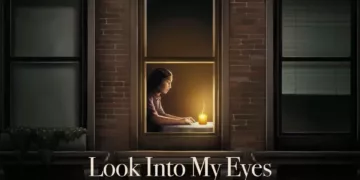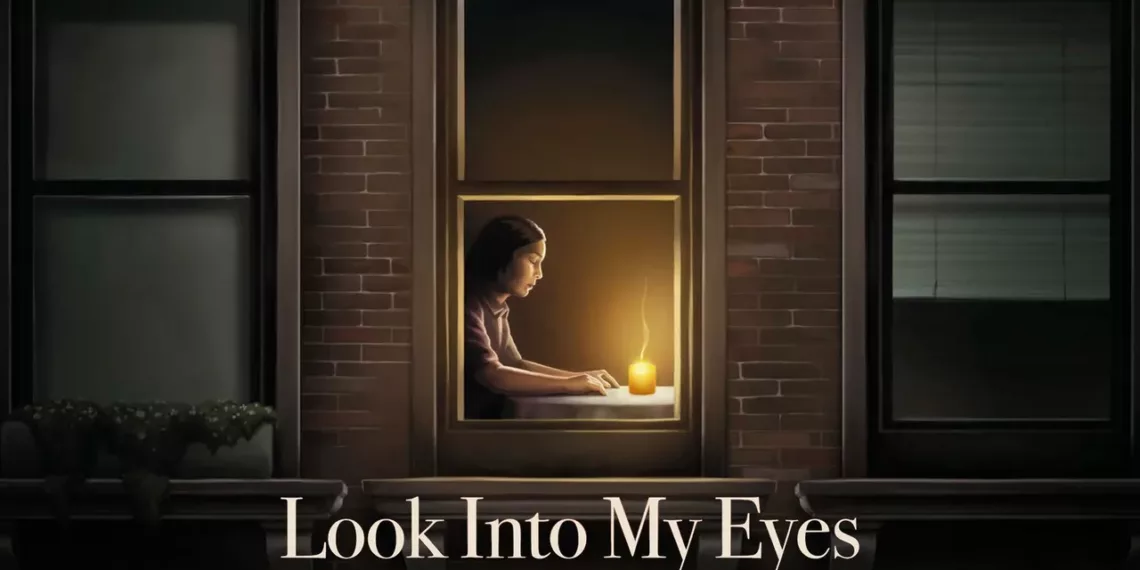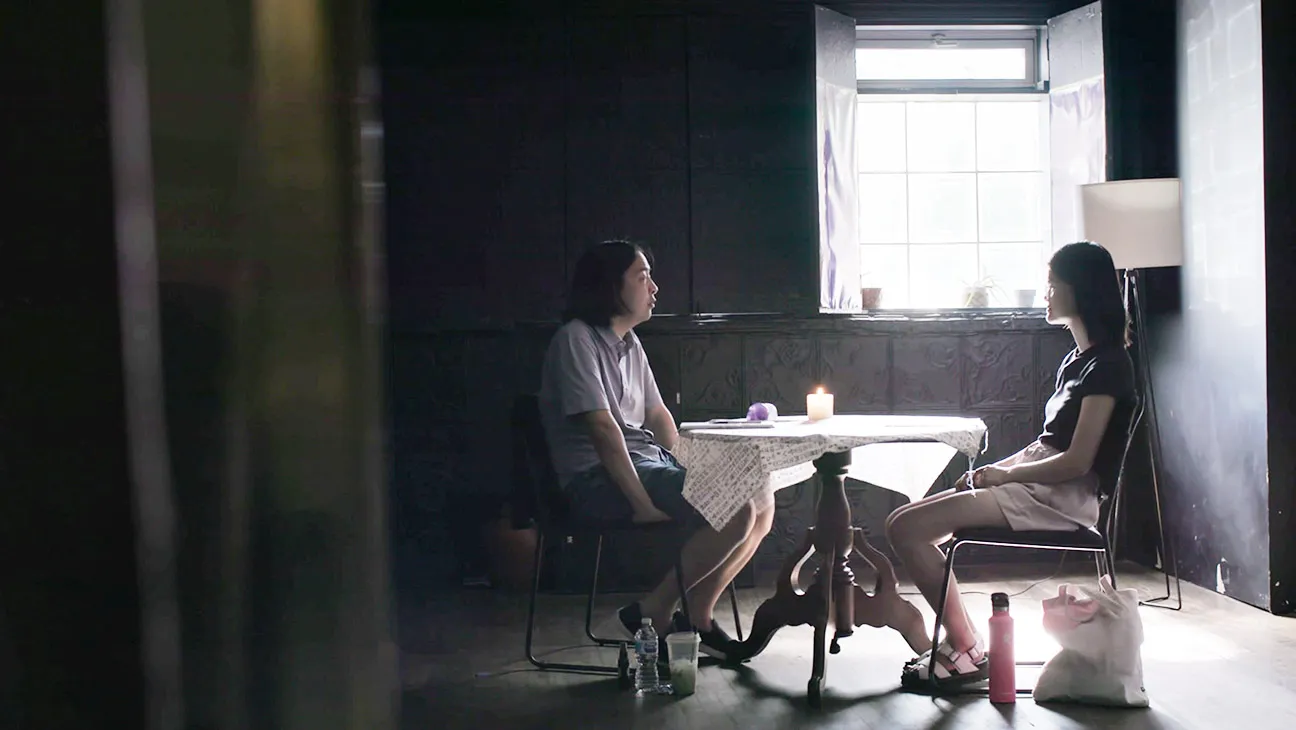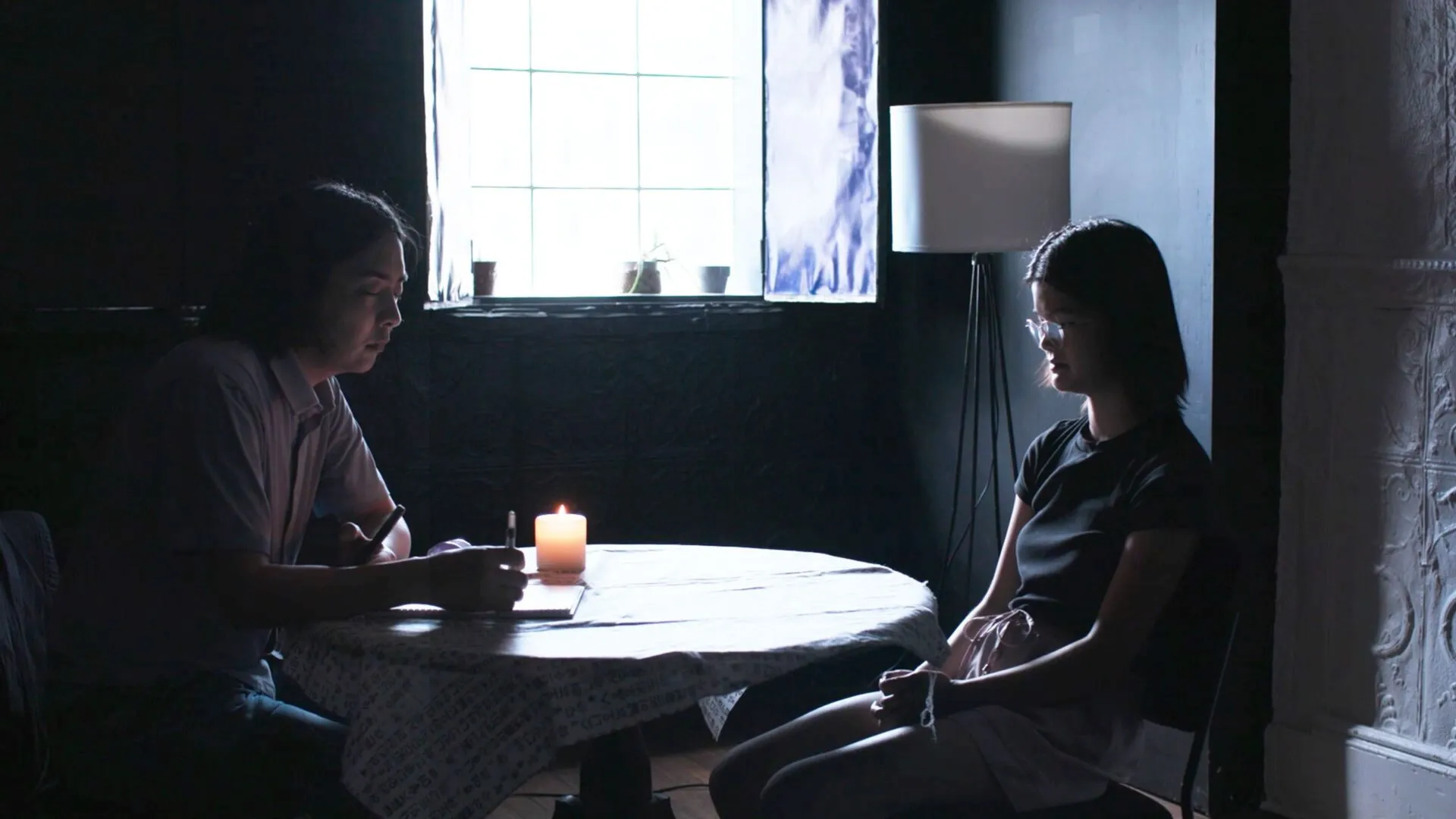Have you ever wondered about the work of psychics? What really happens behind closed doors in those storefront mystical shops? The new documentary Look Into My Eyes provides an intimate look at the lives of several New York City psychics, exploring both their practices and personal journeys. Filmed by skilled nonfiction director Lana Wilson, it had its world premiere at the prestigious Sundance Film Festival earlier this year.
Wilson gains rare access to follow seven diverse psychic practitioners. Their specialties vary from healing ancestral trauma to impromptu party readings to communicating with deceased pets. But Wilson resists quick judgment, observing each subject’s methods up close with empathy. She also gently probes their backgrounds to add understanding. Deeper portraits emerge of people finding purpose in their gifts while grappling with private pains.
A balanced perspective is provided on the believability of psychic ability itself. But perhaps what matters most is how contacts between readers and clients impact both sides. Comforting connections form as psychics and customers alike confront loss and loneliness through these unusual bondings. This documentary simply asks open-minded reflection on such human mysteries.
So if curiosity stirs within you too about psychics and their curious work, Look Into My Eyes just may provide satisfying answers in its delicate portraits full of wisdom on life, connection, and belief.
Quiet Hope Among Grief’s Echoes
The film begins in a way I didn’t expect. A doctor talks of attending years ago to a young girl fatally shot, her trauma never fading. We see only her face as she describes nightly wondering about the child—if she’s found peace. Then a simple plea to her psychic observer: “Can you ask if she’s alright?”
Stunned silence is all that meets her. But it nails you too. In that moment, everyone and no one, the question lingers with startling intimacy. Her grief feels fresh as the day it began, an unhealed wound reopening with the softest prod. It strikes so quietly yet pierces deep, hinting at lingering hurts beneath tidy exteriors.
But it also presents a teasing dilemma. Would you give credence to methods viewed by some as nonsense? Or does her earnest anguish demand allowance for hope, however wispy? Maybe that’s the point—this opener refuses easy answers by raising them subtly. It invites reflection on life’s enduring mysteries more than quick judgment of others’ approaches to them.
Lana Wilson says nothing as the doctor speaks, letting her story sink in without sensationalism. Her empathy is a mirror, reflecting back complex emotions without ridicule or rush to conclusions. In this stillness, a deeper discussion takes shape, one welcoming diverse perspectives from a place of respect. From such a beginning, what follows can only intrigue.
Finding Their Voices
Lana Wilson spends time with seven unique psychic voices. Each walks their own path, yet threads connect them too.
Ilka channels spirit guides with cheerful wisdom. Born in Brazil to a fortune-telling mother, her gifts emerged young. Based on songs and tarot, she radiates calm.
Gentle Eugene struggles with faith, finding solace in movies, music—even John Hughes flicks. His Catholic upbringing clashed with queerness, leaving scars. Still, clients feel safe in his care.
Michael grew up adrift between cultures. As a Chinese adoptee with identity issues, helping others heal their roots grants purpose. His sharp wit lightens difficult talks.
Family rejection drove Per to psychics as a teen. Now he helps queer youth, empathizing with their loneliness. Self-doubt remains, yet clients feel heard in his non-judgmental space.
Phoebe’s past holds hurts too. Estranged from her father, she redirects pain through her animal talents. Clients find lightness in her humor and hope in her gentle insights.
Sherrie transforms hardships through performance. Losing parental support for her dreams fueled creativity and a need to lift others. Her candor is disarming.
Nikenya witnessed tragedy in her ER that refuses to fade. Guiding lost souls to closure may aid her own healing. Passionate, she gives all to service.
Diverse paths all lead to caring for souls in need. With empathy, Wilson honors struggles and strengths in their lives of psychic discovery.
Quiet Moments of Connection
Lana Wilson brings a fly-on-the-wall style to observing readings. With no musical cues or flashy angles, we simply witness nuanced exchanges. It sets an impartial tone, neither glorifying nor mocking the sessions.
The early encounters vary sharply. A nurse seeks closure for a longtime patient. A daughter yearns for a sign her dog feels loved. Both parties appear sincerely invested, yet room remains for alternative explanations.
More lighthearted meetings offer light relief. A lizard-lover wants to know his scaly friend adjusts well to new owners. “Dottie the dog” apparently wages an interior war over walks. Answers come playfully yet caringly.
Serious talks show trauma’s reach. A man struggles with a peer’s suicide. For another, a missing mother’s fate remains an open wound. Readings feel less like mysticism than empathic counsel; emotions are raw on all sides.
Intent gazes and held breaths fill bare rooms. Through subtle gestures and chance remarks, the psychics and clients spin comforting narratives. Whether true visions matter less when solace emerges for wounded hearts.
By avoiding dramatization, Wilson grants us a window onto hushed exchanges where life’s riddles bring both question and answer, if only temporarily, for souls yearning connection beneath life’s surface chaos.
Finding Common Ground
The readings only tell part of the story. Wilson gains access to where these intuitives really live and breathe. Their homes range from pristine to cluttered, but all hold clues to what led them here.
Eugene drifts through a cavernous space, alone but for movie collectibles and a cat. His passion sparkles through when discussing films that soothe past loneliness. Ilka crafted serenity from soul-searching travels, yet scars from her journey remain.
Michael’s neat nest holds pride in Asian heritage, as he seeks rooting having never known his origins. Per made confessions of counseling others through struggles like his own outsiderhood. Their compassion stems from walking wounded paths.
Phoebe unpacks old pains through a bubbly exterior. Her father’s rejection fuels helping lost souls find solace. For Sherrie, creative drives fill a need for purpose. Their gifts let darkness be reignited to light for clients.
In raw moments, each shed armor to expose cracks in bright facades. Wilson gently chisels beyond mystic guises to people barely holding life’s disparate shards together, yet standing tall amidst others’ ruins grants reasons to continue the climb.
Amidst laughter and tears, their solidarity hints salvation lies not in rarefied realms but in the everyday heroes surrounding suffering mankind with hard-fought hope, life’s most potent currency when all else seems valueless.
Finding Meaning in Mystery
Look Into My Eyes takes a balanced view of psychic powers. Wilson seems less fixated on solving this puzzle than understanding its place in these readers’ lives.
Some acknowledge staging aspects, like the actor whose skills aid consultation. Yet results convince people, creating faith that sustains them. And who can say fiction fails to change reality through hope and catharsis?
Whether contact occurs with the beyond matters less than what surfaces between psychics and clients. Trauma finds expression; permission forms to feel joy in small graces. If meaning arises, does it diminish where seeds were planted?
Wilson respects intricacy over instant answers. She depicts earnest counselors dedicating skills, learned or innate, to easing others’ burdens. Their alchemy transforms doubt to trust and despair to comfort.
Perhaps such work validates itself by fruitful connections, not mechanisms. Though mysterious as life, it offers pilgrims in pain what people have always sought—a hand to walk with, ears that hear without contempt, and a voice saying, “You are not alone.”
Every Story Holds Truth
By peeling back layers with subtlety, Look Into My Eyes presents these intuitive workers as full, feeling people rather than oddities. While some may always doubt abilities, Wilson’s documentary resonates because it understands life sees gray where others see only black and white.
Not rigidly arguing any viewpoint, the film allows each mind to ponder its message in their own way. In quietly elevating common ground over division, it spreads light where shadows often fall on peculiar lives.
Wilson trusts audiences enough to draw their own conclusions too. She sees empathy and free thought as allies against prejudice. By the story’s end, initial cynics may feel psychic matters less than the very real hopes renewed between those striving to mend others’ wounds as much as their own.
Any believer in our shared humanity could find affirmation here. While mysteries linger, Lana Wilson spreads light by showing even lives considered eccentric still beat to hopes, hurts, and truths we all understand. Some souls may leave newly affirmed. Others are just open. Both are victory enough.
The Review
Look into My Eyes
Look Into My Eyes takes a compassionate, authentic look at a misunderstood topic, finding deeper truths about belief, identity, and the human need to make meaning from life's pains. Director Lana Wilson approaches her subjects and viewers alike with hard-won empathy, letting space for private insights without argument. Her subtly penetrating film stands as a quietly impactful reminder of our shared capacity for empathy, whatever differences may persist.
PROS
- Sensitive, vérité portraits of the psychics as nuanced people
- Establishes empathy without forcing perspectives on viewers.
- Touches on profound themes of belief, identity, and mutual healing
- Features compelling front- and backstage access to readings
- Narratively and aesthetically subtle without preachiness
CONS
- May frustrate those wanting definitive answers on psychic abilities.
- Could potentially feel slow-paced for some viewers
- Depends highly on openness to its humanistic themes




















































Discussion about this post